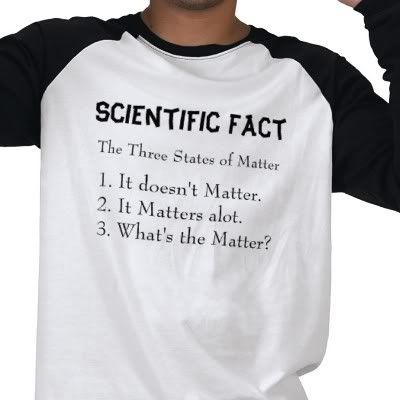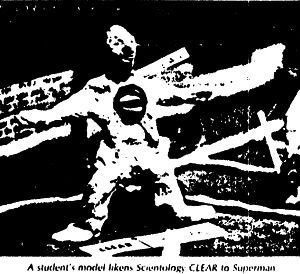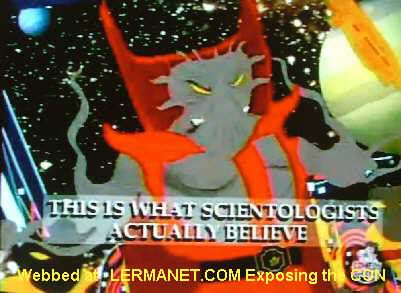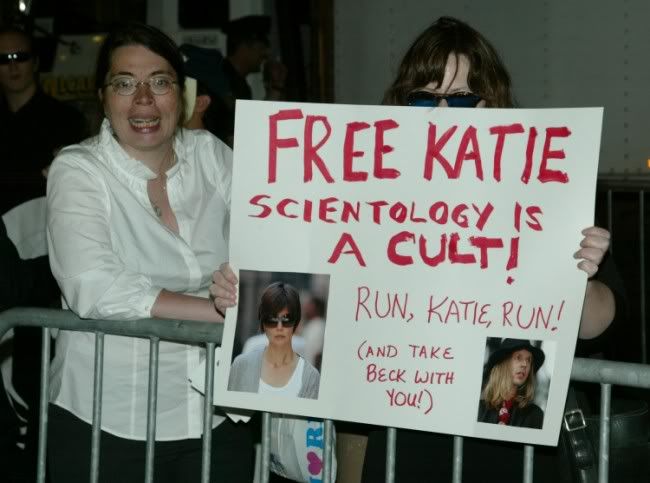DIANETICS
No, I did not search out this book, nor was it given to me by a friend. This came with the collection of science-fiction books my wife bought from an out-of-business bookstore. I am sure that it was included in the set due to Hubbard's backround as a sci-fi writer, although I'm sure many people would argue that this book is certainly not science-fact.

I was determined to read it despite my own pre-bias. I read all the books on my shelf... but more importantly I wanted to know what all the fuss is about. I did my even best to clear my mind of preconceptions and biases and read this book with an open mind.

And at first it went well. I was a little suprised at how reasonable the book starts, following theories along a path of common sense. The core concepts of Dianetics are not revolutionary or terribly controversial. It stands to reason that traumatic events in our past can lead to mental blocks in our psyche which can lead to mental, or even physical, ailments. The idea that one can achieve the status of a "clear", meaning a person free of major or even minor mental blocks and illness, isn't so different from ancient religious goals or modern psychology. The extent that Hubbard details this out reflects the amount of time he put into really thinking this idea out.

But by the middle of the book- once he's got his hooks into the readers of the 1950's who perhaps were not well versed in the study of psychiatry- he starts to really go off the deep end and use his "well-tested" theories as an excuse to blast every aspect of modern society he didn't care for. You see, no matter how hard you try to clear yourself, there will always be surgeons filling your unconscious mind with unpure thoughts while you are under anesthesia. The homosexuals and abortionists and degenerates surround you with their filth and your only salvation lies in following every piece of alien-spawned direction ole' L. Ron spoon feeds you.

Readers of my blog posts will agree, I think, that I can often find something nice to say about everything I read, even if it wasn't my cup of tea. And I really did want to educate myself on the contents and origins of Scientology before I said anything negative in a public forum. I thought that maybe some of the Xenu Galactic Confederacy space opera stuff would make for good sci-fi reading (even if considering it as such may be blasphemous). But I simply had to put the book away. I actually stopped reading a book because I was just that disgusted with the contents.

From the get-go Hubbard is clearly targeting uneducated readers, as evidenced by the fact that he includes definitions for any word more than four letters. As his statements of belief get wilder but are always supported by vague and undocumented lab testing, and are used to justify gross and nasty biases, I found myself increasingly offended. Hubbard offends both my intellect as well as my own beliefs as to everything that is moral and right about the world.

Sorry, L. Ron. Sorry, Tom Cruise. Sorry, Xenu. Scientology has its place in my crossover world of fiction- Hubbard had fleeting relationships with Aleister Crowley's group and Burroughs targets it multiple times in Nova Express, for example. But I had my fill of the trash in Dianetics and don't feel the need to read any more beyond the first half.

Wishing to remain somewhat PC in the more public forum of Goodreads, I rated it two stars (generous!) and my review read like this:
"I liked the hologram volcano on the cover!"

No comments:
Post a Comment